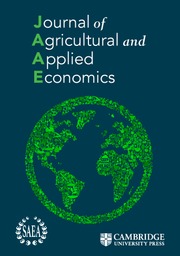No CrossRef data available.
Article contents
Voluntary Effort as a Tax Substitute in the Revenue-Sharing Allocation Formula*
Published online by Cambridge University Press: 28 April 2015
Extract
As a cost reducing measure, it is appropriate that local government officials use voluntary labor in their programs supplying public services to constituencies. The Revenue-Sharing Act of 1972, however, may actually serve as a disincentive to this use of voluntary effort, because the revenue-sharing allocation formula may discriminate against communities using voluntary labor. Stinson and Stam state that “the current allocation procedure (of revenue sharing) fails to take into account the cost of inputs which are not purchased with tax revenues” [7, p. 11]. They further suggest that “the most important of these neglected costs is the opportunity cost of voluntary labor” [7, p. 11]. Hitzhusen states, “to the extent the smaller communities substitute … volunteer for paid effort, then tax effort, and thus their revenue-sharing payment, is decreased” [2, p. 10]. The problem is one of examining alternative ways of modifying the present revenue-sharing allocation formula to include the value of voluntary effort. Providing fire protection services to rural areas by employing voluntary labor is the example used here.
- Type
- Research Article
- Information
- Copyright
- Copyright © Southern Agricultural Economics Association 1976
Footnotes
This paper is based on research conducted in the Department of Agricultural Economics and Rural Sociology at the University of Tennessee.




